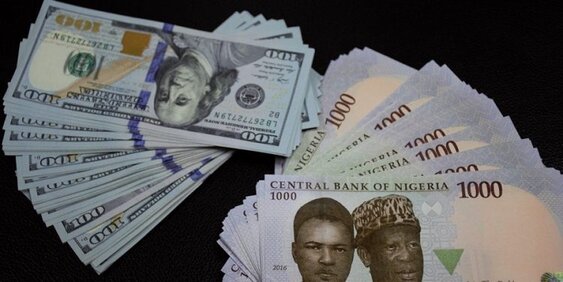Nigeria’s foreign exchange reserves have fallen to $35.63 billion, should investors be worried?
The latest from the Central Bank of Nigeria (CBN) has shown Nigeria’s FX has declined, indicating the lowest level since August 2020.
Nigeria’s reserves have not been impressive since the outbreak of COVID-19 pandemic.
In October 28, it declined to $35.69bn from $35.74bn on September 30. April performance was the worst as it Nigeria’s forex reserves fell to a record low of $33.43bn.
Economy depends on foreign loan and oil revenue
In May, the country’s forex rose sluggishly after the International Monetary Fund (IMF) disbursed $3.4bn loan under its Rapid Financing Instrument for the Buhari-led government to tackle the impact of the pandemic.
The country’s economic reliance on oil and foreign loan makes it helpless while the IMF and the World Bank indirectly dictate the tune.
Recently, Nigeria found itself in the midst of a foreign currency crisis which led to multiple devaluations in March, July, and in August 2020.
While it battles with internal problems of high inflation of consumables, the World Bank mounted pressure on Godwin Emefiele’s led CBN, leading into a unification of the exchange rate, now between N380 and N386/$1.
The apex bank in the latest report stated that “external reserves are expected to lie between $29.9bn and $34.3bn at end-December 2020 (predicated on current declining oil price between $20 and $40).
It stated further that external sector is expected to deteriorate as a result of the COVID-19 pandemic on the economy, “given the present worsening current account balance and depletion of external reserves driven, largely, by decelerating export receipts, particularly oil.
The bank specifically hinted that the degree of external reserves accumulation is expected to decelerate, “as outflows are expected to outweigh inflows.”
What analysts said
Financial analysts believe that CBN would continue “to maintain its forex rationing stance and intensify efforts to keep the naira stable. External reserves to likely fall towards $34bn in the coming months.”
Forex supply will be limited considering the price of oil which is under pressure, says the founder of Financial Derivatives Company Limited, Mr Bismarck Rewane.
Why investors should be worried
So should you be worried?
External reserve helps determine how much forex Nigeria has to meet its import requirements.
The latest decline in forex could send s signal to the forex market that another devaluation is in the offing usually to help boost Naira’s confidence in the FX market.


